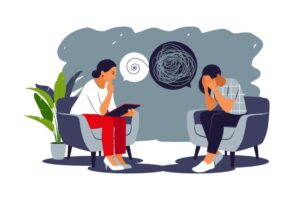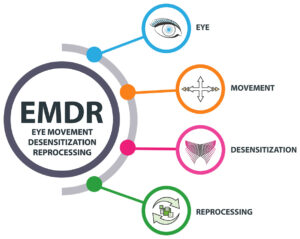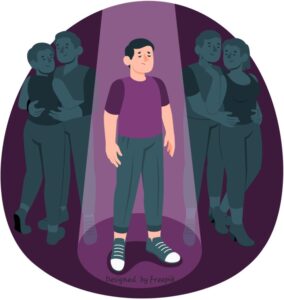Anxiety is persistent and excessive worry and fears that envelops a person in stressful situations. Anxiety is also your body’s natural response to stress, so a person suffering from stress is most likely to be anxious all the time. Anxiety can also be described as constant apprehension of what’s about to come next.
Feeling anxious is every bit natural in a stressful or unfamiliar situation. But if you are feeling anxious almost constantly without any obvious cause and it’s interfering with your life then you might be suffering from an anxiety disorder.
The capability of dealing with anxiety differs in person. But most people find it extremely difficult to deal with their anxiety all by themselves. In such cases, one should immediately seek professional help from a psychologist because if not dealt with good anxiety can aggravate and result in a panic attack.
Types of Anxiety Disorder:
Anxiety is a part of many other disorders and they are often recognized as the sub-part of Anxiety. These disorders are:
- Panic disorder: Experiencing recurring panic attacks without any obvious triggers, at unexpected times. One suffering from panic disorder is often anxious and scared of the reoccurrence of the next panic attack.
- Phobia: It’s an excessive and often irrational fear of a specific object, situation, or activity
- Social -Anxiety disorder: An individual suffering from an extreme fear of being judged by others in any form of social situations
- Obsessive-compulsive disorder: It’s the re-occurrence of irrational thoughts that lead you to perform specific and repeated behaviors
- Separation anxiety disorder: Mostly present in young children. It is the fear of being away or separated from home or their loved ones
- Illness anxiety disorder: This form of anxiety disorder is popularly known as hypochondria. In this the person is constantly worried about his/her health and often believes that they are suffering from something.
- Post-traumatic stress disorder (PTSD): This is anxiety that sets in after a traumatic event and often has triggers that lead to an anxious spiral.
Symptoms of Anxiety:
Anxiety is experienced differently from person to person. For some, it’s butterflies in your stomach while others its unexplainable heart palpitations.
One might feel as if they are out of control and disconnected from their body (Depersonalization).
Other symptoms of general anxiety include
- Nightmares
- panic attacks
- Increased heart rate
- Rapid breathing
- Restlessness
- Trouble concentrating
- Difficulty falling asleep
- Painful thoughts or memories that you can’t control.
- Fear or worry that you’re unable to explain or shrug off
As your experience of anxiety may be totally different from someone else’s experience of it. That’s why it’s important to know all ways in which it can present itself and seek help if the symptoms persist.
Some people may suffer from high-functioning anxiety which actually not a mental diagnosis. It is an evolved version of anxiety disorder in which even though the individual is suffering from anxiety, they seem to be functioning perfectly.
They have nervous energy but they work through it in order to distract themselves from it and often behave like it’s not present at all. These people often look like picture-perfect beings but are emotional wrecks on the inside. The thickly veiled anxiety often presents itself in a destructive manner.
Most people suffering from high-functioning anxiety may not even be aware that most of their actions are driven by the underlying anxiety.
Diagnosis and Treatments for Anxiety:
Anxiety can’t be diagnosed with a single test. In order to diagnose anxiety in an individual a lengthy process is adopted which includes physical examinations, mental health evaluations, and psychological questionnaires.
Doctors conduct physical exams including blood and urine test to rule out any form of underlying medical problem which can, in turn, contribute to the symptoms. Several anxiety tests and scales are also used to help your doctor assess the level of anxiety you’re experiencing.
Once diagnosed with anxiety, there are several treatment options you can opt for given the severity of your condition. For some medication is the only way out while for others lifestyle changes may be enough to cope with the symptoms.
Psychotherapy and Medications are the two approaches for treating. Meeting and talking with a therapist or psychologist can help you learn and unlearn behaviors in order to cope and control your anxiety when it occurs.
Medications are typically used to treat severe cases of anxiety and majorly comprise antidepressants and sedatives. They are given to balance brain chemistry, prevent episodes of anxiety, and ward off the most severe symptoms of the disorder in an individual.
Lifestyle changes also known as anxiety relief techniques are changing that can be an effective way to relive some of the stress and anxiety if incorporated into one’s life. These lifestyle changes are:
- getting enough sleep
- meditating
- staying active and exercising
- eating a healthy diet
- staying active and working out
- avoiding alcohol
- avoiding caffeine
- quitting smoking cigarettes
Feel free to reach out to us for counseling and psychotherapy sessions from our trained psychologists, and psychotherapists.




